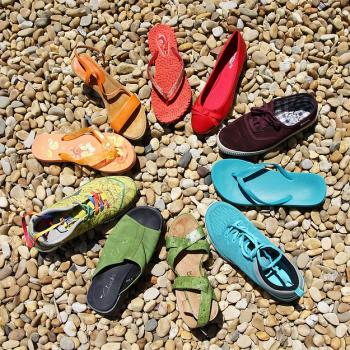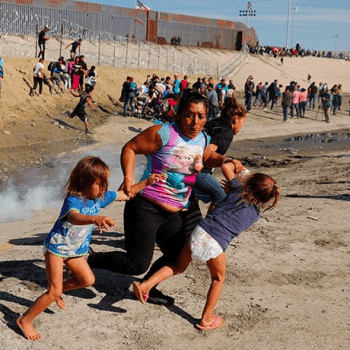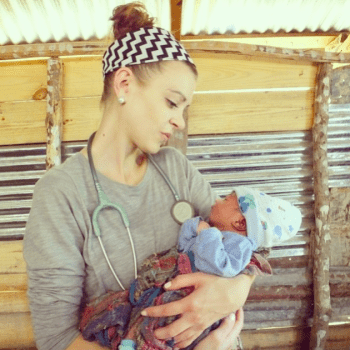I got back from South Sudan last night. My parents met me at the airport, and we shared hugs and tears. Then we came home, and I began re-entry into the western world, where there’s rapid WiFi, flushing toilets, clean tap water, soft pillows, scented candles, and (sadly) no cows or goats or sheep or chicken or pigs trotting down the middle of the road.
I woke up this morning to bright, beautiful, silent snow. I’m sitting here, wrapped my favorite blanket, holding a steaming cup of coffee, thinking about what it means to follow Jesus now that I’m home.
In South Sudan, the needs — and the opportunities to follow Jesus by doing good, making peace and healing brokenness — are obvious. One South Sudanese friend (who grew up in South Sudan and then moved to the U.S. for college and grad school) put it this way: as soon as you land in South Sudan, the brokenness is readily apparent. You can see it in seconds — the mass graves, the dirt roads, the malnourished children, the burned down huts, the soldiers in the streets armed with intimidating guns.
When you land in the U.S., my friend said, you don’t see the brokenness right away. Our brokenness takes a lot of time and intuition to detect. It’s more subtle, more insidious, but it’s here.
I think my friend’s observation is right. There’s a lot to love about our country, and a lot to be grateful for. But for all our virtues and blessings, we have our share of conflict, bitterness, anger and blaming. We have broken systems, broken places, broken people. We have our own darkness — not in our streets, but in our souls. Not for lack of electricity, but for lack of forgiveness and empathy and unconditional love.
This morning I’ve been wondering, What does it mean to follow Jesus here?
I think all too often, American Christians condemn the darkness we see, blaming other people, other political parties, other economic brackets, other leaders for the problems we encounter. It’s easy to curse the darkness, to pass judgment, to assign blame…to wait for other people to change or act or apologize.
But darkness doesn’t lift because you curse at it. Condemnation doesn’t help you find your way when you’re stumbling in the night.
As followers of Jesus, we weren’t called to be passive spectators who pass judgment on the world. We weren’t called to sit fuming, name-calling, blame assigning, head shaking, finger wagging in our pews, waiting for other people to take responsibility for the problems we see.
We weren’t placed here to condemn the night. We were placed here to become the light.
I think what it means to follow Jesus in the U.S. for me, for us, is to be the solution, be the love, be the peacemakers, be the forgivers, be the change, be the hope, be the goodness we wish to see in our world.
As we celebrate Christmas Eve today, many of us will attend a candlelight service. We’ll sit in dim sanctuaries and watch as one spark illuminates the dark. One candle — Jesus, the Light of the World — will start to glow. And the flame from that Light who appeared in our world 2,000 years ago will spread from one candle to the next, lighting the wick of my candle, and yours.
As we hold the Light today, let’s remember our true calling — not to condemn the dark, but to look for ways in which we can become the illumination the world needs.
Let’s let the spark of Divine Love reignite our hearts.
Let’s refuse to sit passively by, cursing the darkness.
Let’s follow in Jesus’ steps, and choose to become the Light.











